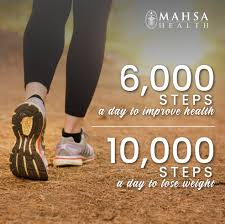
We offer some recommendations if you're thinking of using a diet program to lose weight. We have reviewed MyFitnessPal and MyNetDiary. All three offer different levels of support. Additionally, we have a weight loss plan that doesn't require dieting.
MyNetDiary
MyNetDiary is a great app for keeping track of your diet and exercising. The app makes it easy to record food and activity in as little as 2 minutes. The app even includes a barcode scanner that allows for easy and quick food tracking. It has over one hundred thousand foods stored in its database. This allows you to easily find the best recipes for your particular diet. It also provides data on calories taken, calories burned, as well as macros. This can help you plan more efficiently. It even has charts that allow you to monitor your progress over time.

Lose It!
Lose It! This app allows you to keep track of how many calories are being consumed. The app allows you to enter your ideal weight and current weight, and then it tracks how many calories each food has. The app even includes a barcode scanner so you can easily scan food labels. Another feature that is very nice is the ability of taking pictures of your meals and recording them.
MyFitnessPal
MyFitnessPal, an app that tracks your food intake, is one such example. It will allow you to set calorie targets and track how many calories have been consumed. It also helps you to set a goal weight. But many nutritionists don’t like calorie-counting because it doesn’t take into account different health benefits from similar calories. For example, one medium apple can have 30 calories, while another can have 120. It is important to know the nutrition facts for the food you eat. A good place to look for food information is the USDA Food Composition Database.
Lose Weight Without Dieting
To lose weight without dieting, you can try apps that will track your meals and log your weight. These apps also allow you to log your water intake and exercise. You can scan the food barcodes on many of these apps to see how many calories you have eaten. Many of these apps offer detailed nutrition information like calories, carbohydrates, and protein.

This is the best thing you can eat!
Eat This, Not That! David Zinczenko, Matt Goulding and the popular Men's Health column columnist, created the media franchise. Their books have sold over 8 million copies.
FAQ
What is the best time to do Intermittent fasting in order to lose weight
The answer is not as simple as you might think. There are many factors that need to be taken into consideration when deciding how many days of fasting is necessary for optimal fat loss. These are:
-
Your age. For example, if you're young (under 40), intermittent fasting may be too difficult for you because you have less time to recover from each day's fast. However, intermittent fasting may be too difficult for older people (over 60) who might not have the energy to continue a long period of daily fasting.
-
Your current body composition. If you already have a lot of muscle mass, you'll likely benefit most from longer periods of fasting. If you don't have a lot of muscle mass, shorter fasting periods may be more suitable.
-
How physically active. Regular exercise may mean that your fasting window needs to be extended to allow you to get sufficient rest between sessions.
-
Your medical history. Extra fasting may be necessary for people who have heart disease, diabetes, cancer, or other medical conditions.
-
How well do you tolerate stress? Stress can cause us to eat more. This problem can be avoided by increasing the length of your fasting periods.
-
It is the type of diet you are following. Certain diets, like ketogenic diets, may require even longer fasting periods.
-
Your sleep quality. Also, a lack of sleep has been linked with increased appetites and decreased metabolism. It might take some time to find what works best for your needs.
-
The amount you eat of protein. Consuming more protein helps to stabilize blood sugar levels. This could lead to lower insulin levels. This will allow you to fast longer.
-
Whether you're trying to gain or lose weight, people who are trying to gain weight usually require longer fasting periods than those who are trying to lose weight.
-
How many calories do you consume in your fasting windows? You might lose more fat if your daily calories are lower than those you consume.
-
Your fitness level. The metabolic rate of fast people who are fit is higher, which means they burn more calories each day.
-
Your gender. Men tend to have greater appetites that women, so they may need a longer fast. Women may only fast for 20-30 mins each morning because they have a smaller appetite.
-
Your lifestyle. Are you someone who is active? Do you workout several times each week? Are you a worker who sits at a computer all day? These things could impact the speed at which you should go.
-
What amount do you spend on food each month? Healthy eating doesn't mean you have to spend a lot on groceries. Whole grains can be replaced by white bread, fruits can replace candy bars, and lean cuts of meat can be used to save money.
-
How important it can be to control your appetite. You may not have to fast as often if it is important to eat regularly.
How to make an exercise plan?
First, create a routine. You need to know what you will do each day and how long you will spend doing it. This helps to plan ahead and avoid procrastination.
You should also ensure you have plenty to choose from when working out. You don't want to become bored with exercise because then you won't stick with it.
Keep track of your progress. It's important to see how much weight you have lost or gained over time.
If you start off by losing weight, it's easy to lose motivation if you don't gain any additional weight. You may find it difficult to stay motivated if your weight increases.
So, try to find a balance between gaining weight and losing weight. You'll find it harder to exercise if you don't like where you are at the moment.
Is there a difference in intermittent fasting and calorie restrictions?
Calorie restriction means eating less calories than your body requires. Intermittent fasting is different because it doesn't involve restricting calories. Intermittent fasting focuses more on eating fewer calories every day.
Intermittent Fasting is more efficient because you can enjoy the foods you love without feeling guilty.
Both methods have their merits and weaknesses. You have to decide which method you prefer.
What level of exercise is required to lose weight?
There are many factors that influence the amount of exercise required to lose weight. These include your gender, age, body type and how heavy you are. Most people require moderate activity at least five days per week.
The American College of Sports Medicine recommends 150-minutes of moderately intense aerobic activity every week. It should be spread over three separate days.
If you are trying to lose 10 pounds, 300 minutes of moderate intensity exercise per week is a good goal. This includes activities such brisk walking and swimming laps, bicycling, dancing, playing tennis or golfing, hiking, running, jogging and other similar activities.
For those just starting out, you might consider 20 minutes of vigorous activity every other week. That could include activities like lifting weights, sprints, jumping rope, or fast walking.
Aerobic exercise can help burn calories as well as build muscle mass. Muscle burns more calories per calorie than fat. So building muscle can help you lose weight faster.
What Can You Lose in One Week?
Your current body fat percentage will determine how much weight you can lose. First, calculate how much weight your goal weight is and then determine what your BMI (Body Mass Index). Your BMI indicates how much weight we should lose to achieve our goal. If your BMI is 25 or greater, you're overweight. If your BMI is more than 30, you are obese.
If you are 200 lbs, your BMI will be 28.7. To drop to a healthy range of weight, you will need to lose approximately 70 pounds. To see if you're overweight, visit www.healthyminds.com/bmi/.
Once you have your BMI, you are able to use this formula for calculating how many pounds each week you will lose.
(Your Goal Weight - Current Weight)/BMI * 7 Number Of Pounds Lost Per Week
To lose 50lbs in a month you will need 2 weeks worth of exercise. This equals 56 days. Then, divide that by 7 pound per day. That works out to 8.3 pounds lost per week.
You could also try this calculator from www.weightlosscalculator.net. It gives you a rough estimate of how many calories you should eat daily to lose 1 pound per week.
Are there side effects to intermittent fasting
Intermittent fasting has no known side effects. Some minor issues might occur if you do not plan your meals properly.
For instance, if breakfast is skipped, you might feel uneasy all day. Headaches, dizziness, fatigue and muscle cramps are all possible.
These symptoms usually resolve within a few weeks.
Statistics
- According to Harvard Health, it's estimated that a 155-pound (70-kg) person burns roughly 112 calories per 30 minutes of weight training (5). (healthline.com)
- A 12-week study in 20 women with obesity found that walking for 50–70 minutes 3 times per week reduced body fat and waist circumference by an average of 1.5% and 1.1 inches (2.8 cm), respectively (healthline.com)
- According to a study sponsored by the American Council on Exercise, a person weighing around 140 pounds (64 kg) would burn 108 calories at a 30-minute beginner's Pilates class or 168 calories at an advanced class of the same duration (26). (healthline.com)
- Another study found that 24 weeks of weight training led to a 9% increase in metabolic rate among men, which equated to burning approximately 140 more calories per day. (healthline.com)
External Links
How To
How to lose weight quickly and without doing any exercise
Fast weight loss is possible by eating fewer calories than you burn. This will allow your body to begin burning stored fat for energy. Your body will reduce the amount of calories you eat and begin to use that energy to make muscle tissue, leading to some muscle reduction. You can still lose weight if you don't work out while dieting, but you'll probably lose even more muscle mass.
It is possible to lose weight fast and not have to exercise by reducing your calorie intake. While many people believe they need to cut back on their food intake, it is not the truth. If you are looking to lose weight, it is important to consume fewer calories per day than you burn. So what should you be eating each day? It all depends on the type of activity that you do each day. A runner who walks three miles each day would only need about 2,500 calories per week. One who sits at the desk all day would require 1,600 calories daily. An individual who exercises, like lifting weights, would consume around 2,000 calories each day.
To lose excess weight, you need to cut back on your caloric intake. Many people believe that they need to eat less because they feel starving. This is not true. Your body doesn't care whether you're hungry or not; it just wants to function properly. Tracking your calorie intake is key to losing weight. Many apps online allow you to track calories. Some of these apps include MyFitnessPal, Calorie Counter, and LoseIt!